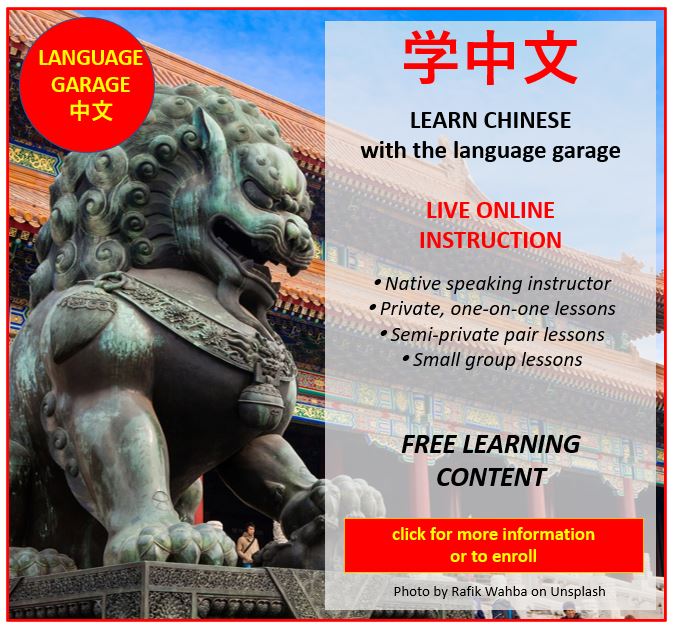Image source: cegoh on Pixabay
In this post we’ll take a look at Chinese vocabulary, expressions, and grammar related to talking about what you like, what you find interesting, and what you’re really into doing.
我喜欢巧克力。 Wǒ xǐhuān qiǎokèlì. I like chocolate.
If you’re talking about things or people that you like, use the verb 喜欢 xǐhuān.
- 我喜欢巧克力/香草。
Wǒ xǐhuān qiǎokèlì/xiāngcǎo.
I like chocolate/vanilla. - 我喜欢书/电影。
Wǒ xǐhuān shū/diànyǐng.
I like books/movies.
- 你喜欢泰国菜吗?
Nǐ xǐhuān tàiguó cài ma?
Do you like Thai food? - 他喜欢蘑菇/洋葱/大蒜。
Tā xǐhuān mógū/yángcōng/dàsuàn.
He likes mushrooms/onion/garlic. - 她喜欢这首歌。
Tā xǐhuān zhè shǒu gē.
She likes this song. - 孩子们喜欢他们的新老师。
Háizimen xǐhuān tāmen de xīn lǎoshī.
The kids like their new teacher. - 我喜欢这个歌手。 你喜欢这个歌手吗?
Wǒ xǐhuān zhège gēshǒu. Nǐ xǐhuān zhège gēshǒu ma?
I like this singer. Do you like this singer? - 我喜欢你的兄弟/姐妹/朋友。
Wǒ xǐhuān nǐ de xiōngdì/jiěmèi/péngyǒu.
I like your brother/sister/friend.
比起猫,我更喜欢狗。 Bǐ qǐ māo, wǒ gèng xǐhuān gǒu. I like dogs more than cats.
If you want to say that you like A more than B, use the verb 更喜欢 gèng xǐhuān to prefer, or 比 起Y 更喜欢 X bǐ qǐ Y gèng xǐhuān X to like X more than Y. Notice that the order of X and Y are different in Chinese and English!
- 我更喜欢巧克力。
Wǒ gèng xǐhuān qiǎokèlì.
I prefer chocolate. - 比 起香草,我更喜欢 巧克力。
Bǐ qǐ xiāngcǎo, wǒ gèng xǐhuān qiǎokèlì.
I like chocolate more than vanilla. - 比起猫,我更喜欢狗。
Bǐ qǐ māo, wǒ gèng xǐhuān gǒu.
I like dogs more than cats. - 我更喜欢狗。
Wǒ gèng xǐhuān gǒu.
I prefer dogs. - 比起意大利面,我们更喜欢披萨。
Bǐ qǐ yìdàlì miàn, wǒmen gèng xǐhuān pīsà.
We like pizza more than pasta. - 我们更喜欢泰国菜。
Wǒmen gèng xǐhuān tàiguó cài.
We prefer Thai food.
我喜欢做饭。 Wǒ xǐhuān zuò fàn. I like to cook.
If you’re talking about things that you like to do, use the verb 喜欢 xǐhuān followed by another verb.
- 我喜欢阅读/旅行/看电视。
Wǒ xǐhuān yuèdú/lǚxíng/kàn diànshì.
I like to read/travel/watch TV. - 我喜欢学习外语。
Wǒ xǐhuān xuéxí wàiyǔ.
I like to learn foreign languages. - 我喜欢骑自行车/游泳/健行。
Wǒ xǐhuān qí zìxíngchē/yóuyǒng/jiànxíng.
I like to ride my bike/swim/go hiking. - 她喜欢早上锻炼。
Tā xǐhuān zǎoshang duànliàn.
She likes to work out in the morning. - 他喜欢在星期天睡很晚。
Tā xǐhuān zài xīngqítiān shuì hěn wǎn.
He likes to sleep late on Sundays. - 我们喜欢一起看电影。
Wǒmen xǐhuān yīqǐ kàn diànyǐng.
We like to watch movies together. - 他们喜欢争论政治。
Tāmen xǐhuān zhēnglùn zhèngzhì.
They like to argue about politics. - 你有什么喜欢做的事?
Nǐ yǒu shé me xǐhuān zuò de shì?
What do you like to do? - 你喜欢去哪里度假?
Nǐ xǐhuān qù nǎlǐ dùjià?
Where do you like to go on vacation? - 你喜欢看什么类型的电影?
Nǐ xǐhuān kàn shénme lèixíng de diànyǐng?
What kind of movies do you like to watch? - 你喜欢吃什么样的食物?
Nǐ xǐhuān chī shénme yàng de shíwù?
What kind of food do you like to eat?
我真的很喜欢科幻小说。 Wǒ zhēn de hěn xǐhuān kēhuàn xiǎoshuō. I really like science fiction.
If you really like or love something, you can use the verb 爱 ài (to love), or the expression 真的很喜欢 zhēn de hěn xǐhuān (to really like.)
- 我爱/真的很喜欢 狗/猫/动物。
Wǒ ài/zhēn de hěn xǐhuān gǒu/māo/dòngwù.
I love/really like dogs/cats/animals. - 我爱/真的很喜欢 温暖的天气/下雪。
Wǒ ài/zhēn de hěn xǐhuān wēnnuǎn de tiānqì/xià xuě.
I love/really like warm weather/snow. - 我爱/真的很喜欢 埃塞俄比亚食物。
Wǒ ài/zhēn de hěn xǐhuān āisāi’ébǐyǎ shíwù.
I love/really like Ethiopian food. - 他爱/真的很喜欢 古典音乐。
Tā ài/zhēn de hěn xǐhuān gǔdiǎn yīnyuè.
He loves/really like classical music. - 她爱/真的很喜欢 电子游戏。
Tā ài/zhēn de hěn xǐhuān diànzǐ yóuxì.
She loves/really like video games.
我超迷这家新餐厅。 Wǒ chāo mí zhè jiā xīn cāntīng. I’m mad about this new restaurant.
Some idiomatic expressions that you can use to talk about what you really like are 超迷 chāo mí (to be into, to be obsessed with, to be crazy about) or 真的超迷 zhēn de chāo mí (to be really into, to be super obsessed with).
- 我超迷这家商店/餐厅。
Wǒ chāo mí zhè jiā shāngdiàn/cāntīng.
I’m mad about this store/restaurant. - 她超迷她的新车。
Tā chāo mí tā de xīnchē.
She’s nuts about her new car. - 他真的超迷健行/滑雪/跑步。
Tā zhēn de chāo mí jiànxíng/huáxuě/pǎobù.
He’s really into hiking/skiing/running. - 我真的超迷露营。
Wǒ zhēn de chāo mí lùyíng.
I’m really into camping. - 他超迷摩托车。
Tā chāo mí mótuō chē.
He’s crazy about motorcycles.
我爱我的妈妈。 Wǒ ài wǒ de māmā. I love my mother.
To talk about loving a person in a non-romantic way, use the verb 爱 ài (to love.)
- 我爱我的母亲/父亲。
Wǒ ài wǒ de mǔqīn/fùqīn.
I love my mother/father. - 他们爱他们的孙子。
Tāmen ài tāmen de sūnzi.
They love their grandchildren. - 他爱他的姐妹。
Tā ài tā de jiěmèi.
He loves his sister. - 她爱她的朋友。
Tā ài tā de péngyǒu.
She loves her friends.
我爱你。 Wǒ ài nǐ. I love you.
The verb 爱 ài can also be used to express romantic love.
- 我爱你。
Wǒ ài nǐ.
I love you. - 我爱我老婆。
Wǒ ài wǒ lǎopó.
I love my wife. - 我爱我的老公。
Wǒ ài wǒ de lǎogōng.
I love my husband. - 他们非常相爱。
Tāmen fēicháng xiāng’ài.
They love each other very much.
语言很有趣。 Yǔyán hěn yǒuqù. Languages are interesting.
There are all sorts of other ways to express that you like something.
- 这本书真的很好/很酷。
Zhè běn shū zhēn de hěn hǎo/hěn kù.
This book is really good/cool. - 语言很有趣。
Yǔyán hěn yǒuqù.
Languages are interesting. - 我发现书籍/语言/电影很有趣。
Wǒ fāxiàn shūjí/yǔyán/diànyǐng hěn yǒuqù.
I find books/languages/films interesting. - 我认为书比电影更有趣。
Wǒ rènwéi shū bǐ diànyǐng gèng yǒuqù.
I think that books are more interesting than films. - 滑雪令人兴奋。我觉得滑雪很刺激。
Huáxuě lìng rén xīngfèn. Wǒ juédé huáxuě hěn cìjī.
Skiing is exciting. I find skiing exciting. - 旅行是迷人的。我觉得旅行很有趣。
Lǚxíng shì mírén de. Wǒ juédé lǚxíng hěn yǒuqù.
Traveling is fascinating. I think traveling is fascinating. - 骑自行车很有趣。我真的很享受骑自行车。
Qí zìxíngchē hěn yǒuqù. Wǒ zhēn de hěn xiǎngshòu qí zìxíngchē.
Biking is fun. I really enjoy biking. - 电影很娱乐/有趣。
Diànyǐng hěn yúlè/yǒuqù.
Films are entertaining/interesting. - 这位作家很了不起。她的书不可思议。
Zhè wèi zuòjiā hěn liǎobùqǐ. Tā de shū bùkěsīyì.
This writer is amazing. Her books are incredible. - 这家餐厅很棒。这里的食物很精致/美味。
Zhè jiā cāntīng hěn bàng. Zhèlǐ de shíwù hěn jīngzhì/měiwèi.
This restaurant is great. The food here is exquisite/delicious.
Do you want to learn Chinese?
Check out our other posts on Chinese language, culture, and more. And if you’re looking for convenient and affordable live Chinese lessons with a real teacher, check out The Language Garage. Our lessons are given online in a virtual classroom, so it doesn’t matter where you live or work – we can come to you. And we have flexible options, with a free trial so that you can decide if there’s a fit. Check us out!






